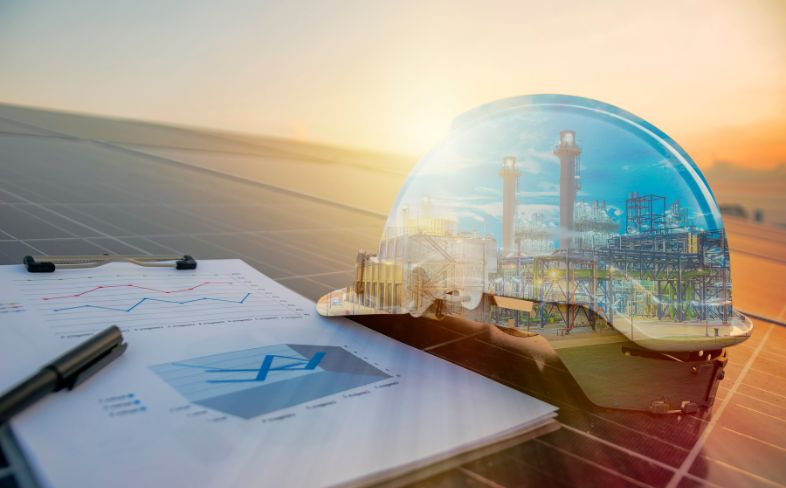The fourth annual Atlantic Council Global Energy Forum, a pre-World Future Energy Summit event wrapped up several days of high-level discussions on the energy agenda for 2020 and the decade ahead
Policy-makers from 75 countries and industry influencers took part in discussions, workshops and bilateral meetings covering a range of topics, including energy security and sustainability.
Transitioning to more sustainable sources of energy was an important focus of the forum.
?Climate-fueled natural disasters have cost the economy almost $1 trillion over the last five years. The energy transition that we?re talking about and have been talking about over the last four years is driven in part by the quest to avoid these costs and will require massive investment, but if implemented correctly will bring about countless benefits and will become the driver of economic growth, innovation, and energy security for all,? said Atlantic Council president and CEO Frederick Kempe.
?Over the next two decades, we will see growth of at least 25 to 30 per cent in energy demand. This is a rate of increase that no single source can satisfy and presents the key challenge of how to produce more energy with fewer emissions,? said H.E. Dr Sultan al-Jaber, UAE Minister of State and CEO of Abu Dhabi National Oil Company (ADNOC).
The importance of investment, particularly from oil revenues, was raised by H.E Suhail Al Mazrouei, UAE Minister of Energy and Industry: ?Talking as a member of OPEC, I can assure you that the commitment I have seen among all of the countries, which are now more than 20 countries in the OPEC-plus, they are all committed not to raise the prices, not to just benefit. They are committed to deliver a balance and ensure that the world is well supplied, ensure that we incentivise investment into the sector.?
?Switching today's coal [use] into gas would save 6 billion tons of CO2,? explained Marco Alver?, Chief executive Officer of Snam S.p.A. ?The effort has to be to compress the cost of infrastructure liquefication, get natural gas into the coal consuming countries at a price point which makes a switch happen the same way it happened in gas producing countries like the United States.?
?One hundred per cent renewables ? is completely a fool?s paradise,? said Adnan Amin, Atlantic Council Distinguished Fellow and former Director-General of the International Renewable Energy Agency (IRENA). He added, ?There is going to be a mix. We need to ensure that that is an optimal mix.?
The current state of geopolitics and its impact on the energy industry was a timely point of discussion.
?The current moment is an opportunity to draw closer to our partners and allies, to strengthen interconnections between vibrant societies, and to use energy as a tool for promoting peace, stability, and prosperity across the globe,? said General James L. Jones, Jr., USMC (Ret.) Executive Chairman Emeritus of the Atlantic Council and former National Security Advisor.
?I am pleased that geopolitical tensions have dissipated over the past few days, and that wisdom, balance, and diplomacy appear to be prevailing,? said Dr Sultan al-Jaber.
?There is this idea that we can have it both ways, believing that the US conflict with Iran will continue, that there will be retaliatory attacks, but also that the price of oil will remain that same as it is today,? said Amos Hochstein, Senior Vice President at Tellurian. ?I think is a bit of wishful thinking."
As well as the situation in the Middle East, Asia was another region which was in the spotlight at the forum.
?[In] the past 10 years, India has grown to be a major player in renewable energy, and this is driven through the government?s policy and the push towards diversification of the energy mix. India and the rest of Asia were heavily dependent either on coal, fossil fuel, or hydro. Renewable energy has been the name of the game over the past 10 years,? said Mohamed Al Ramahi, CEO of Masdar.
?In the past let?s say a decade, what has happened in the region is outstanding: great penetration of renewable energy driven by mainly China and India, and then followed by Southeast Asia. And today we see Central Asia following the trend of growth in terms of renewable energy penetration. On top of that, we have seen a drastic decrease in the cost of renewable energy technology, particularly solar and wind, approximately 80 per cent reduction in the cost when it comes to solar and 50 per cent when it comes to onshore wind,? said the Hon. Dr Tawfiq-e Elahi Chowdhury, Energy Adviser to the Honorable Prime Minister, People?s Republic of Bangladesh.
The three-day forum, which concluded on Monday, was held under the patronage of His Highness Sheikh Mohammed Bin Zayed Al Nahyan, Crown Prince of Abu Dhabi and Deputy Supreme Commander of the United Arab Emirates Armed Forces. The Forum was convened in partnership with the Ministry of Energy & Industry of the United Arab Emirates, Abu Dhabi National Oil Company (ADNOC), and Mubadala Investment Company, with Sharjah-based Crescent Petroleum and Emirates Nuclear Energy Corporation as Platinum Co-Chairs.



























